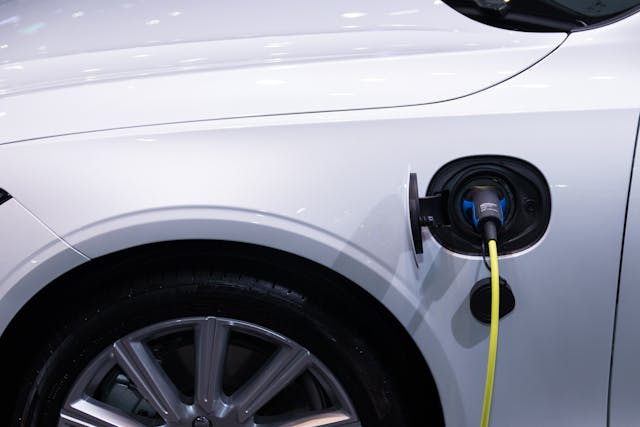Electric vs. Hybrid Cars: Which Is the Right Choice for You?
As the world continues to shift towards more sustainable living, the automotive industry is also undergoing a significant transformation. Electric and hybrid cars are at the forefront of this change, offering drivers more eco-friendly options compared to traditional gasoline-powered vehicles. But with the growing popularity of both electric and hybrid cars, how do you know which one is the right choice for you?
In this article, we’ll compare electric and hybrid cars across several important factors to help you make an informed decision based on your driving habits, budget, and environmental concerns.

What Are Electric Cars?
Electric cars, or Battery Electric Vehicles (BEVs), run entirely on electricity. They have large batteries that are charged using electricity from external sources, such as home chargers or public charging stations.
- No Gasoline: Electric cars don’t require gasoline, which makes them 100% emission-free while driving. This helps reduce air pollution and greenhouse gas emissions.
- Range: The range of electric vehicles has improved significantly over the years. Some modern electric cars can go 250-370 miles on a single charge, depending on the model and battery size.
- Charging: Charging an electric car takes longer than filling up a gas tank. However, many newer electric vehicles can be charged at home with a level 2 charger, which typically takes 4 to 8 hours for a full charge. Fast-charging stations can recharge the battery much faster (around 30 minutes for 80% charge), but they are not as widely available as gas stations.
Popular Electric Cars: Tesla Model 3, Nissan Leaf, Chevrolet Bolt EV, Audi e-tron, Rivian R1T.
What Are Hybrid Cars?
Hybrid cars use both an internal combustion engine (gasoline engine) and an electric motor to power the vehicle. There are two main types of hybrid vehicles:
- Full Hybrids (HEVs): These cars can drive solely on electricity, solely on gasoline, or a combination of both, depending on the situation.
- Plug-in Hybrids (PHEVs): These cars have a larger battery that can be plugged in and charged, allowing them to drive for shorter distances on electricity alone before the gasoline engine kicks in.
Benefits of Hybrid Cars:
- Better Fuel Efficiency: Hybrid vehicles typically get much better fuel economy compared to traditional gasoline-powered cars, thanks to the combination of gasoline and electric power. Many hybrids can achieve 40-60 miles per gallon (mpg).
- Extended Range: Hybrids can travel longer distances on a single tank of gas compared to electric vehicles, since the gasoline engine kicks in when the battery is depleted.
- Less Charging Infrastructure Required: Unlike electric cars, hybrids don’t need to be plugged in to operate. They will continue running using the gasoline engine if the electric battery runs low, making them a convenient option for long-distance drivers.
Popular Hybrid Cars: Toyota Prius, Honda Insight, Ford Escape Hybrid, Hyundai Ioniq, BMW 330e.
Environmental Impact
When it comes to environmental impact, both electric and hybrid cars are greener alternatives to traditional gasoline-powered vehicles, but there are key differences.
- Electric Cars: Electric vehicles have zero tailpipe emissions, which means they don't contribute to air pollution while driving. However, the environmental impact of an electric car depends on the source of the electricity used to charge it. If the electricity comes from renewable sources like wind or solar, the car has a minimal carbon footprint. But if the electricity comes from coal-powered plants, the emissions associated with the car's energy consumption are higher.
- Hybrid Cars: Hybrid cars are more eco-friendly than traditional cars because they use less gasoline. However, they still produce some emissions because of their gasoline engine. Hybrids offer a significant reduction in carbon emissions compared to conventional cars, but they don't provide the same level of environmental benefits as fully electric cars.
In summary, electric cars are the more environmentally friendly option, especially if the electricity used for charging is from renewable sources. Hybrids, while still better than traditional vehicles, don't have the same emission-free driving potential.
Cost and Savings
When considering the financial aspect, there are several things to factor in, including the initial purchase price, maintenance costs, fuel savings, and government incentives.
Electric Cars:
- Upfront Cost: Electric cars tend to be more expensive than hybrid and traditional cars due to the cost of their large batteries. However, prices have been dropping as battery technology improves.
- Government Incentives: Many governments offer tax credits and rebates for electric vehicle buyers, which can offset the higher initial cost. In the U.S., for example, federal tax credits of up to $7,500 are available for eligible electric vehicles.
- Fuel Savings: Charging an electric car is generally cheaper than purchasing gasoline, and many charging stations offer free or low-cost electricity. The average cost to "fuel" an electric vehicle is significantly lower than that of a hybrid or gasoline-powered car.
- Maintenance Costs: Electric cars have fewer moving parts than hybrid or gasoline cars, leading to lower maintenance costs in the long term. They don’t require oil changes, and brakes tend to last longer due to regenerative braking systems.
Hybrid Cars:
- Upfront Cost: Hybrid cars tend to be more expensive than regular gasoline-powered cars but are generally cheaper than electric vehicles. The price premium varies by model and brand.
- Fuel Savings: Since hybrid cars use both gasoline and electricity, they save money on fuel but still rely on gasoline for longer trips. The savings depend on driving habits and how often the car runs on electric power.
- Maintenance Costs: Hybrid cars have both an electric motor and an internal combustion engine, meaning they may require more maintenance than fully electric vehicles. However, their maintenance costs are typically lower than those of traditional gasoline cars.
In terms of long-term savings, electric cars usually come out on top due to lower fuel and maintenance costs, especially if you drive frequently and charge your vehicle at home. Hybrid cars offer fuel savings but are generally better suited for drivers who want a more traditional vehicle experience with the added benefit of some electric power.
Driving Range and Convenience
- Electric Cars: Range anxiety has been one of the main concerns for potential electric car owners, as the driving range can be limited compared to gasoline-powered cars. However, recent advancements in battery technology have increased the range of many electric cars to a point where they can easily handle most daily commutes and short trips. Long-distance driving may still require planning around charging stations.
- Hybrid Cars: One of the key advantages of hybrid cars is their ability to travel longer distances without needing to stop for a charge. As long as there is gasoline in the tank, the vehicle can keep driving. This makes hybrids a great choice for people who take frequent long trips or don't have access to a reliable charging infrastructure.

Which Is Right for You?
Choosing between an electric or hybrid car depends on your personal driving needs and preferences. Here are some factors to consider:
Go for an Electric Car if:
- You have access to a charging station at home or near your daily commute.
- Your daily driving distance is within the range of an electric vehicle.
- You want to reduce your carbon footprint as much as possible and go completely emission-free.
- You are looking for lower long-term operating and maintenance costs.
Go for a Hybrid Car if:
- You frequently drive long distances or travel in areas with limited charging infrastructure.
- You want to experience the benefits of electric driving but still rely on gasoline for longer trips.
- You want a balance between eco-friendliness and convenience.
- You have a smaller budget and are looking for a lower upfront cost compared to an electric vehicle.
Conclusion
Both electric and hybrid cars have their advantages, and the best choice depends on your driving habits, environmental priorities, and budget. Electric cars are the future of green transportation, offering zero emissions, lower running costs, and cutting-edge technology. On the other hand, hybrid cars offer greater flexibility and longer range, making them an excellent option for those who want to dip their toes into the world of electric driving without fully committing.
Whatever your choice, both types of vehicles represent significant steps toward reducing the automotive industry's impact on the planet. By considering your needs and weighing the pros and cons of each, you can make an informed decision about which is the right fit for you.












